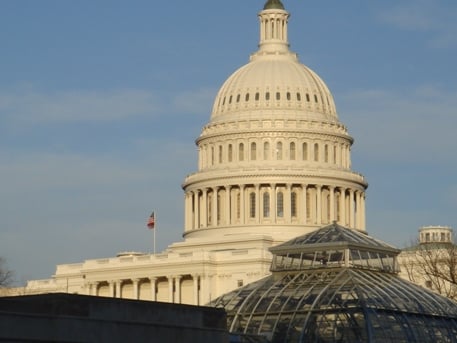Panel must find $1.5 trillion in savings; taxes and entitlements on the table?
As the special congressional panel on deficit reduction is filled out, the roster offers a blend of party stalwarts and wildcards that makes it difficult to predict how it will approach its mandate.
Created by the last week's legislation to raise the debt ceiling, the bipartisan panel – consisting of six Republicans and six Democrats from the House and Senate – is charged with determining $1.5 trillion in deficit savings over 10 years.
That number would complement the $917 billion in cuts included in the original bill that allows President Barack Obama to raise the debt ceiling by $2.1 to $2.4 trillion by the end of 2012.
The Joint Select Committee on Deficit Reduction has until Nov. 23 to come up with a proposal, and the House and Senate must vote on the package by Dec. 23. A simple majority in each chamber is needed for approval, and no amendments will be allowed.
House Speaker John Boehner, R-Ohio, and Senate Minority Leader Mitch McConnell, R-Ky., made their appointments to the committee today.
The House Republicans are Rep. Jed Hensarling, R-Texas, chairman of the House Republican Conference; Rep. Dave Camp, R-Mich., chairman of the House Ways & Means Committee; and Rep. Fred Upton, R-Mich., chairman of the House Energy and Commerce Committee.
The Senate Republicans are Sen. Jon Kyl, R-Ariz., Senate Republican whip; Sen. Pat Toomey, R-Pa., a member of the Budget and Banking Committees; and Sen. Rob Portman, R-Ohio, former director of the Office of Management and Budget in the George W. Bush administration.
Late Tuesday afternoon, Senate Majority Leader Harry Reid, D-Nev., made his three appointments to the committee. They are Sen. Max Baucus, D-Mont., chairman of the Senate Finance Committee; Sen. Patty Murray, D-Wash., a member of the Budget Committee and chairwoman the Senate Democratic campaign organization; and Sen. John Kerry, D-Mass., chairman of the Foreign Relations Committee.
Mr. Hensarling and Ms. Murray will be co-chairs of the committee. House Minority Leader Nancy Pelosi, D-Calif., has until Aug. 16 to make her three appointments.
With party leaders — such as Mr. Hensarling, Mr. Kyl and Ms. Murray — serving on the deficit panel, it becomes less likely that the so-called ‘super committee' will break from party orthodoxy.
During tense negotiations over the debt ceiling bill, Republicans refused to consider tax increases while Democrats defended entitlement spending like Medicare, Medicaid and Social Security. They both prevailed in the final measure.
The partisan tension over these issues was one factor leading to Standard & Poor's downgrade of federal debt last Friday that has created market turbulence this week. The super committee will provide Capitol Hill an opportunity to prove that Democrats and Republicans can work together.
Many experts insist that the parties will have to address both taxes and entitlements in order to make fundamental changes in the deficit trajectory.
Mr. McConnell is confident the team he's sending to the committee can do something substantial.
“My main criteria for selecting members was to identify serious, constructive senators who are interested in achieving a result that helps to get our nation's fiscal house in order,” Mr. McConnell said in a statement. “That means reforming entitlement programs that are the biggest drivers of our debt, and reforming the tax code in a way that makes us more competitive and leads to more American jobs.”
Mr. Reid asserts that his team will work well across the aisle.
“I have appointed three senators who each possess an expertise in budget matters, a commitment to a balanced approach and a track record of forging bipartisan compromise,” Mr. Reid said in a statement.
The combination of the S&P downgrade, the market jitters and plummeting congressional favorability ratings may inspire the committee to exceed expectations, according to one analyst.
“The complexity of tax reform certainly makes it difficult to complete by the November 23 deadline for the select committee to issue a recommendation,” Brian Gardner, senior vice president for Washington research at Keefe, Bruyette & Woods Inc., wrote in an Aug. 9 analysis.
“But we think it is possible that the committee can establish an outline or a framework that Congress can finish in early 2012.”







